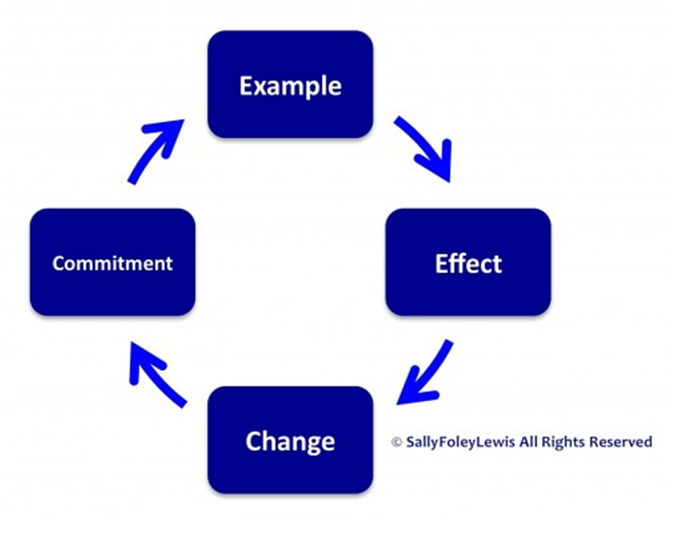An Uncomfortable Hour Or Years Of Poor Performance?
 Contributed by
Sally Foley-Lewis
February 10, 2016
Contributed by
Sally Foley-Lewis
February 10, 2016

Do you know your company’s policy for performance management? Every leader needs to be aware of it so they can act in accordance with its guidelines or steps. Chat with your HR person to find out more.
I’m having lots of coaching conversations lately which involve managers dealing with long-time poor performance, with one coachee telling me she’d put off having a conversation about a certain behaviour for years, yes, years!. It’s time to remember that the performance management policy [it may be called other things, such as disciplinary procedures] is in place to ensure you – the leader – do the right thing by the employee and the organisation. Please use it! Please follow it!
The leader comes to the coaching conversation wanting to know how they can change the employee: what they really mean is, empower a change in behaviour. Using Example, Effect, Change, Commitment (EECC: or The Easy EECC™ Way) as a feedback formula is valuable. However, if the employee has already mentally resigned, has not shown any inclination to improve, won’t submit work, etc. then that’s a whole new situation. The EECC formula can still be used to work through the ‘mental resignation’.

If the employee’s performance is not going to improve, then step back and ask the deeper question of ‘why’. One question that a manager could ask an employee is: “What will you do to ensure you can improve your performance and lift it back up to where you once were?” This is a conversation-starter question that should lead to deeper questions to help engage the employee. Asking a question like this and remaining silent so that the employee can think and respond appropriately will be a good starting point.Yes, it may feel uncomfortable but here’s the rub:
Would you rather work through an uncomfortable one-hour conversation or another X number of years of poor performance?

Your choice!
Uncomfortable, scared and nervous are usually how leaders and managers feel when they are thinking about having to have most feedback conversations. It NEVER has to feel like that, especially when you shift your thinking from one of how uncomfortable you’ll be and how terrible the employee is at present, towards an attitude of how this conversation aims to lift the employee and how the employee has the potential to work and perform better. Having an attitude of wanting to support and empower the employee will help set the tone for the conversation.
Following or ‘activating’ the company’s performance management policy may result in the change you want to see in the employee. To follow the policy may take extra time and effort in the interim; however, consider the alternative: more poor performance. Use the EECC formula to structure your conversation as you follow the policy guidelines.
#PonderThat
If you or your managers would rather have teeth pulled without painkillers than have performance/feedback conversations, then you need to grab consider improving your feedback skills. To make feedback easy, smooth and structured check out Successful Feedback: the one simple formula for highly effective feedback. It will help you:
- Being clear about who the feedback is for and why.
- Being able to give feedback that affects real behaviour change.
- Being able to give feedback that genuinely supports and recognises great work.
- Use your existing performance management process as a key management tool rather than viewing it as a hindrance.
This article was first published on Sally Foley-Lewis blog and has been reposted on Executive Lifestyle with the permission of the author.
Edited by Nedda Chaplin
Did you enjoy this post? Please comment, like and share!











Sorry, the comment form is closed at this time.